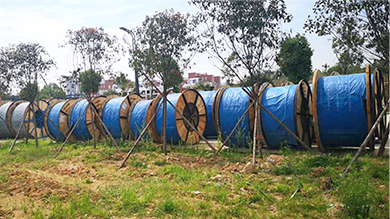Nov . 16, 2024 20:30 Back to list
cast iron valve
Understanding Cast Iron Valves Characteristics, Applications, and Advantages
Cast iron valves are integral components in various industrial applications, particularly in the management of fluid flow. These valves, composed primarily of cast iron, are known for their durability, strength, and resistance to corrosion. Their robust nature makes them ideally suited for high-pressure and high-temperature environments, where reliability and performance are crucial.
Characteristics of Cast Iron Valves
1. Material Composition The primary material used in the manufacturing of cast iron valves is, unsurprisingly, cast iron. This material is formed by melting iron and adding a variety of alloying elements such as carbon, silicon, and occasionally other metals. The composition typically results in a hard, brittle product, which can endure significant wear and tear.
2. Variety of Types There are several types of cast iron valves, including globe valves, gate valves, check valves, and butterfly valves. Each type has its unique function and operational design, making them suitable for different applications. For example, globe valves are used for regulating flow, while gate valves are primarily utilized as on-off valves.
3. Corrosion Resistance Cast iron has inherent properties that provide natural resistance to corrosion. This resistance is particularly important in applications involving water, sewage, and other corrosive fluids. However, the level of resistance can vary based on the type of cast iron used, with ductile iron often providing superior corrosion resistance compared to gray iron.
4. Maintenance and Lifespan Cast iron valves require relatively low maintenance due to their rugged construction. However, regular inspection is recommended to ensure that they function correctly over time. With proper care, cast iron valves can have a long operational lifespan, sometimes exceeding 50 years, making them a cost-effective solution in the long run.
Applications of Cast Iron Valves
Cast iron valves find their use in a multitude of industries, including
1. Water Supply and Wastewater Treatment In municipal water systems, cast iron valves are essential for controlling water flow and managing pressure within pipelines. Similarly, in wastewater treatment facilities, they help regulate the flow of sewage and other fluids.
cast iron valve

2. Chemical Processing The chemical industry often utilizes cast iron valves to manage the flow of corrosive substances. Their durability ensures they can handle various chemicals, making them suitable for a wide range of processing applications.
3. Heating and Cooling Systems In heating and cooling applications, such as those found in HVAC systems, cast iron valves help regulate water and steam flow, ensuring efficient heat transfer and temperature control.
4. Oil and Gas Sector The oil and gas industry relies on cast iron valves for their ability to withstand high pressures and extreme conditions. These valves are used in pipelines, production facilities, and refineries to control the flow of crude oil and natural gas.
Advantages of Cast Iron Valves
1. Strength and Durability One of the primary benefits of cast iron valves is their strength. They can withstand high pressures and resist wear and tear from abrasive materials, making them ideal for demanding applications.
2. Cost-Effectiveness While the initial cost of cast iron valves can be higher than other materials, their longevity and low maintenance requirements often outweigh the upfront expenses. Over time, they provide a favorable return on investment due to their durability and reliability.
3. Extensive Availability Cast iron valves are widely manufactured and readily available. This abundance makes it easy to source replacement parts or specific valve types, ensuring that systems can be quickly repaired or upgraded.
4. Versatility With their range of types and sizes, cast iron valves can be used in a myriad of applications, offering solutions for various industries. This versatility makes them a popular choice among engineers and project managers.
Conclusion
In summary, cast iron valves are vital components across multiple industries, providing efficient flow control and operational reliability. Their strong physical properties, resistance to corrosion, and long lifespan make them invaluable assets in demanding environments. As industries continue to evolve and seek cost-effective, durable solutions, cast iron valves will undoubtedly remain a fundamental choice in the realm of fluid management. Whether in municipal systems, chemical processing, or oil and gas applications, the significance of cast iron valves cannot be overstated.
Share